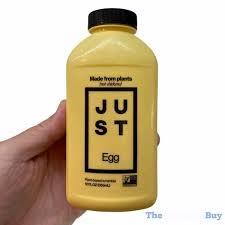
According to an article by Mary Emmon Shoup in the August 15th edition of FOOD Navigator, Josh Tetrick claims that his JUST synthetic vegetable-based product has reached price parity with real eggs. He does not specify the type of egg or the time period for the claimed comparison. In reality the JUST product even at a reduced selling price is three times the cost of liquid from conventional eggs at current prices.
According to the USDA Egg Markets Overview, the national average retail price for the week ending August 12th was $2.14 per dozen for large white-shelled eggs. A dozen, large eggs will yield 22 oz. of liquid at a unit price of 9.7 cents per oz. JUST Egg, at $3.99 for a 12-ounce container has a unit price of 33.3 cents per oz.
 Notwithstanding the price differential JUST Egg has an inferior amino acid profile and vitamin content compared to real eggs that have pristine ‘clean’ labels.
Notwithstanding the price differential JUST Egg has an inferior amino acid profile and vitamin content compared to real eggs that have pristine ‘clean’ labels.
Josh Tetrick claims that the reduction in price for JUST Egg substitute is the result of economies of scale and more efficient processing of the mung bean isolate. This may be a valid explanation but previous claims by Tetrick have demonstrated his style of hyperbole. It is questioned whether in fact the lack of demand in an inflationary environment and the consequential need to move more product to offset fixed costs may be the motivation for the price reduction.
Reference to a national retail database shows a 21 percent year-over-year increase in sales for JUST over the past four weeks through multi-channel outlets including club stores and 16 percent for conventional supermarkets and grocery stores. These increases were based on sales of approximately $3.2 million for the four weeks preceding July 7th 2021. For 2022 it is noteworthy that sales demonstrated a plateau during the 1st quarter at $992,000 per month and showed a small decline to $986,000 for the four weeks to July 7th. The JUST product has not demonstrated growth in 2022 and will inevitably follow the classic parabolic demand cycle of a generic product and volume will decline due to consumer fatigue and price inequality with competing alternatives. The reduction in price from $4.55 to $3.99 per 12 oz. container may have some short-term effect on sales but the actual disparity in cost in relation to real eggs will not materially increase sales. This based on the presumption that JUST has a narrow consumer base comprising the affluent who are concerned over welfare and sustainability and are willing to pay for their principles. The majority of price conscious consumers do have calculators.